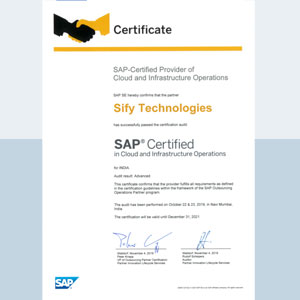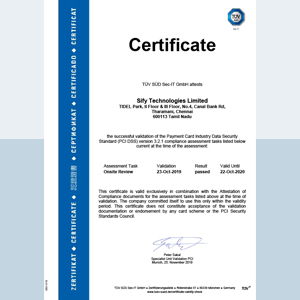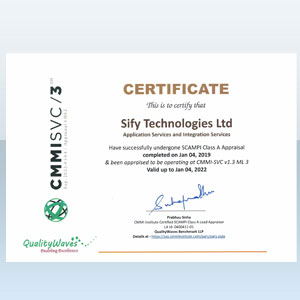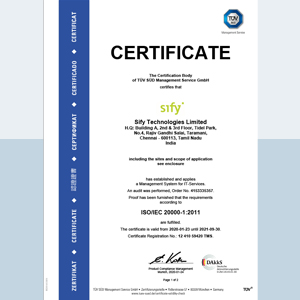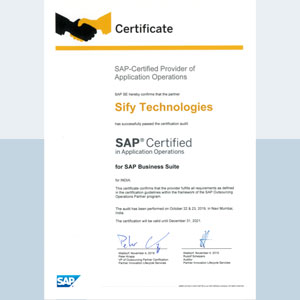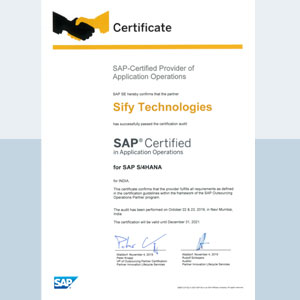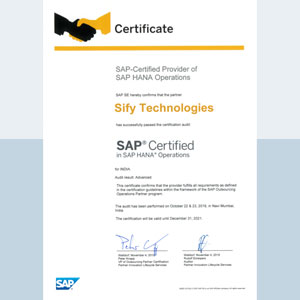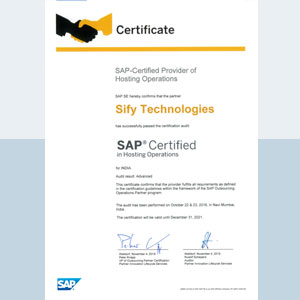Table of contents
In a world where digital transformation is the key to business success, cloud services have become a pillar for contemporary organisations. With their scalable, secure, and adaptable pay-per-use solutions, cloud services enable companies to innovate at a faster pace, lower their costs, and improve operational effectiveness.
As agility and performance are becoming top priorities for businesses, embracing cloud solutions has become the norm.
What Are Cloud Services?
Cloud services refer to the delivery of on-demand computing resources such as – applications, servers, storage, and networking over the Internet. Instead of owning infrastructure or software in-house, organizations can obtain these services through a pay-as-you-go model. This reduces the requirement for initial capital investment and also allows for ease of scalability.
Cloud services can be broadly classified into:
- Infrastructure as a Service (IaaS):Offers virtuOffealised computing infrastructure like servers and storage.
- Platform as a Service (PaaS):Provides a platform for developers to build, test, and deploy applications.
- Software as a Service (SaaS):Delivers software applications to end-users via the internet.
- Anything as a Service (XaaS):Encompasses a range of services that can be delivered via the cloud.
Read about cloud service models compared: IaaS, PaaS & SaaS
Why Use Cloud Services?
Leveraging cloud solutions eliminates the need to manage complex IT infrastructure, permitting organizations to focus on core business operations. By leveraging cloud solutions, business can:
- Reduce IT complexity:Simplify IT operations by offloading infrastructure management to cloud solution providers.
- Enhance agility and speed:Deploy applications, services, and updates, enabling faster innovation.
- Scale resources seamlessly:Scale up or down based on business demands, ensuring cost efficiency.
- Enhance collaboration:Enable secure remote access to teams to collaborate and manage projects effectively.
- Ensure high availability:Benefit from guaranteed uptime and disaster recovery capabilities.
- Large scale analytics:Extremely large data set and very high computing power needed for large scale analytics specially in the field of gaming AI/ML which was not possible before due to extremely high cost of ownership is possible in a flexible pay-per-use model available to the enterprises.
What Are the Benefits of Cloud Services?
Cloud services offer a multitude of advantages that enable businesses to remain competitive and agile in the market.
-
Scalability and Flexibility
Cloud platforms enable companies to scale resources dynamically to respond to changing needs. Whether scaling storage, computing capacity, or bandwidth, organizations can maximise performance without the inconvenience of over-provisioning.
-
Cost Efficiency
Cloud services remove the need for expensive hardware investments and ongoing cost of maintenance. Organizations pay only for the resources they consume, leading to lower total cost of ownership (TCO).
-
Disaster Recovery and Business Continuity
Cloud services provide automatic data backup and seamless disaster recovery, reducing downtime and ensuring business continuity. Cloud-based disaster recovery strategies ensure that organisations can restore critical data with minimal delay.
-
Enhanced Security
Leading cloud providers implement stringent security protocols, including encryption, identity management, and access controls, to protect sensitive business data. Compliance with industry regulations (such as GDPR or HIPAA) is often built-in.
-
Faster Time to Market
Cloud environments enable application development and deployment at a faster pace, shortening the time to get products or services into the market. Development teams may use PaaS solutions to simplify software development lifecycles.
-
Improved Collaboration and Mobility
Cloud-based collaboration tools, such as Microsoft 365 and Google Workspace, enable real-time collaboration across geographies, empowering remote and hybrid work environments.
-
Automatic Updates and Maintenance
Cloud service providers handle infrastructure maintenance, security patches, and software updates, ensuring that applications remain secure and up-to-date without manual intervention.
Cloud Services Use Case
Cloud services are transforming how organisations operate by enabling agility, scalability, and cost efficiency. Here are core use cases, each illustrated with industry-specific examples:
-
Data Center Modernisation & Cloud Migration
Modernizing legacy infrastructure by migrating from on-premise data centres to the cloud helps businesses scale on demand while reducing capital expenditure.
Example: A large retail chain migrated its ERP systems to the cloud to enable real-time inventory management across stores nationwide. -
Data Center Modernisation & Cloud Migration
Cloud-based DR and backup solutions ensure business continuity and data integrity in case of outages or cyberattacks.
Example: BFSI organisations adopt cloud DR to meet regulatory compliance and achieve near-zero RTO and RPO. -
Disaster Recovery (DR) & Backup-as-a-Service
Cloud-based DR and backup solutions ensure business continuity and data integrity in case of outages or cyberattacks.
Example: BFSI organisations adopt cloud DR to meet regulatory compliance and achieve near-zero RTO and RPO. -
Hybrid & Multi-Cloud Management
Enterprises leverage a mix of private and public cloud environments to optimise workload placement, enhance reliability, and prevent vendor lock-in.
Example: Government agencies use hybrid cloud to manage sensitive data on-premise while scaling citizen services via public cloud. -
Cloud-Native Application Development
Using microservices and containerisation technologies (like Kubernetes), organisations can build, deploy, and scale applications faster.
Example: A health-tech startup developed a cloud-native teleconsultation app, enabling seamless video consultations and rapid feature rollouts. -
Data Analytics & AI
Cloud platforms enable large-scale data analytics and AI/ML workflows using GPU-powered infrastructure for model training and inference.
Example: Manufacturing firms use cloud analytics dashboards to predict equipment failure and optimise maintenance schedules. -
Cloud Security & Compliance
End-to-end cloud security frameworks such as Cloud Security Posture Management (CSPM), Secure Access Service Edge (SASE), and Identity & Access Management (IAM) ensure data protection and compliance.
Example: A fintech company implemented SASE and IAM to safeguard customer data and comply with RBI security guidelines.
What are the Types of Cloud Deployment Environments?
- Public Cloud:
Resources are hosted by third-party providers and shared across users.Use When: You need fast scalability, cost-efficiency, and quick deployment—for example, startups launching digital services or organisations handling unpredictable workloads. - Private Cloud:
Dedicated infrastructure hosted on-premise or via a single provider.
Use When: You require greater control, security, and compliance—for instance, in finance or healthcare where data sovereignty matters. - Hybrid Cloud:
Combines private and public cloud, allowing data and applications to move between them.
Use When: You need flexibility to run sensitive workloads in private cloud and use public cloud for scalable operations or burst capacity. Hybrid models also support legacy integration and gradual cloud adoption. - Multi-Cloud:
Use of multiple public cloud providers for different workloads.
Use When: You want to avoid vendor lock-in, improve resilience, or optimise performance by choosing best-in-class services across providers.
How Sify Can Help with Cloud & Managed Services
Sify Cloud & Managed Services offers end-to-end support for your entire cloud lifecycle, whether your target is public, private, or hybrid environments. From deployment to optimisation and ongoing operations, Sify empowers organisations to unlock agility, efficiency, and resilience across diverse IT setups.
What We Do:
- Deploy any target cloud environment – hyperscalers (AWS, Azure, Google, Oracle) or Sify’s own CloudInfinit enterprise hybrid cloud platform with full advisory support.
- Optimise workloads with automation-led cost and performance tuning via Sify’s Multi-cloud Management Platform (infinitCMP) for unified governance across clouds.
- Manage end-to-end infrastructure: multi-cloud observability, 24/7 SOC, backup/DR, Kubernetes, SAP, DaaS, and unified security.
Sify’s Cloud Service Offerings
-
Sify CloudInfinit Services
Provides scalable and secure cloud infrastructure, ensuring enterprise-grade performance and resilience.
-
Hyperscale Partner Cloud Services
Enables seamless migration to hyperscale cloud environments like AWS, Azure, Google Cloud and Oracle, offering agility and cost optimisation.
-
Multi-Cloud Management Services
Simplifies multi-cloud management with a single-pane-of-glass approach, ensuring visibility, governance, and cost control.
-
Advisory & Migration Services
Assists organisations in assessing cloud readiness, designing migration strategies, and executing seamless transitions.
-
Hybrid Cloud Managed Security Services
Hybrid cloud offers advanced threat detection, risk management, and compliance capabilities to protect cloud environments.
-
Content Delivery Services
Enhances web application performance and latency through optimised content delivery solutions.
Future-Proof Your Business with Sify CloudInfinit
As businesses continue to embrace digital transformation, leveraging cloud services has become essential to maintaining a competitive edge. With Sify CloudInfinit, organisations can unlock the full potential of cloud technologies while ensuring cost efficiency, security, and agility. Whether you are adopting a hybrid cloud strategy, managing multi-cloud environments, or enhancing security postures, Sify CloudInfinit offers the expertise and capabilities to accelerate your cloud journey.
Ready to transform your business with cloud services? Get a tailored cloud strategy for your business. Speak to our experts today.


















